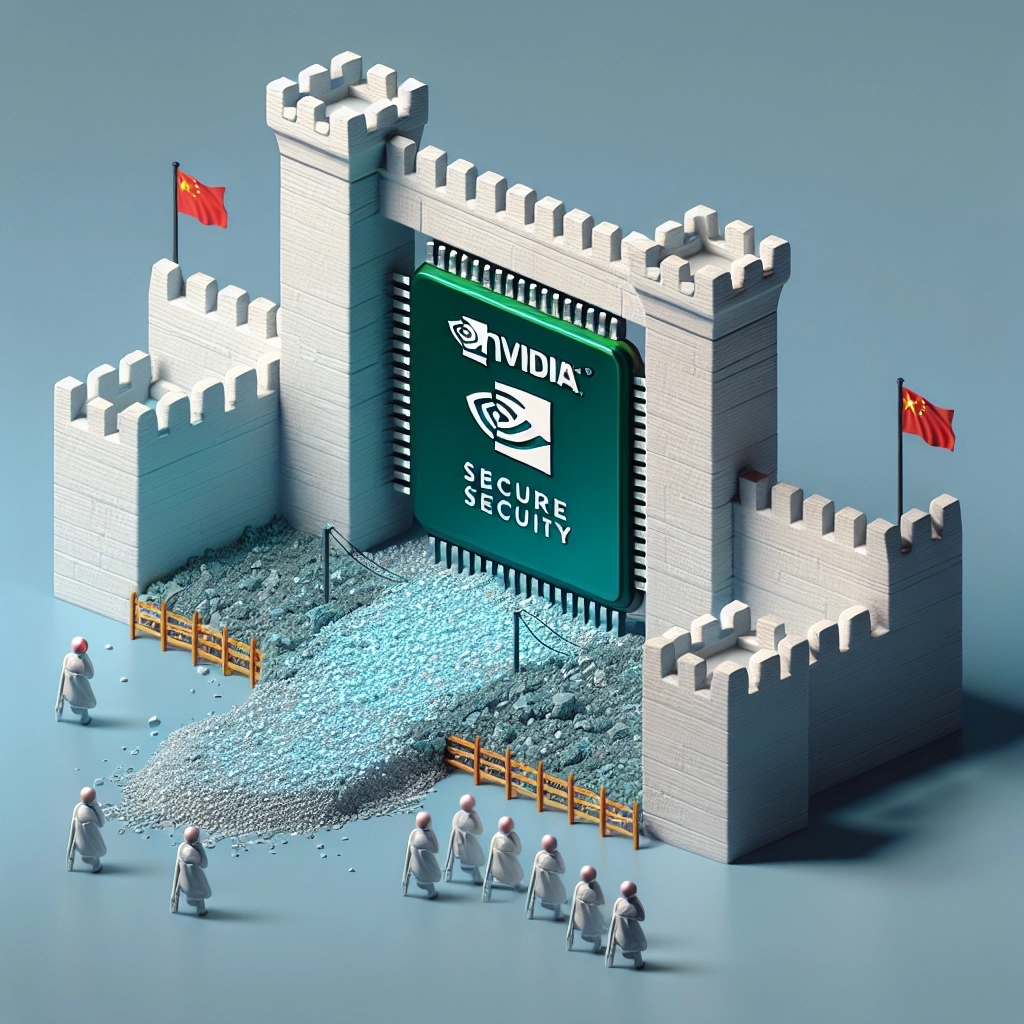China has intensified its scrutiny of Nvidia, particularly concerning the company’s H20 artificial intelligence chips, leading to mounting tensions between the two nations. A recent opinion piece in the state-controlled People’s Daily, titled “Nvidia, how can I trust you?” marked a significant escalation, coming on the heels of a meeting between Chinese regulators and Nvidia officials regarding alleged security vulnerabilities.
The Chinese government has expressed concerns about potential backdoor vulnerabilities in the H20 chips, prompting a public challenge to Nvidia’s security claims. Despite the company’s assurances that their chips do not contain remote access points, the commentary insisted that Nvidia must produce compelling security evidence to reassure Chinese users and restore market trust.
The situation escalated further when China’s Cyberspace Administration summoned Nvidia representatives to address what they termed “serious security issues” linked to tracking and shutdown capabilities within the H20 chips. Nvidia’s spokesperson reiterated their position on cybersecurity, denying any existence of backdoors.
The People’s Daily illustrated potential catastrophic scenarios involving H20 chip vulnerabilities, such as vehicles losing power or critical surgeries failing, framing these risks as a potential “nightmare.” The commentary connects these security concerns to recent US legislative efforts mandating that advanced AI chips feature tracking mechanisms to prevent their diversion to adversaries, including China.
Beijing’s demands were highlighted in context with US regulatory proposals, emphasizing the perception of an American-led technology containment strategy. Acknowledging Nvidia’s prior assurances, the article nevertheless demanded substantive proof to regain trust, thus transforming the conversation from mere security assertions to the requirement of verifiable evidence.
The tension reflects broader anxieties over semiconductor supply chains vital for the global enterprise AI landscape. The H20 chip, which is specifically modified for the Chinese market to comply with US trade restrictions, illustrates the balancing act Nvidia faces as it navigates conflicting demands from both the US and China.
The semiconductor dispute is compounded by an ongoing technology competition between the two nations, which has resulted in significant financial implications for US semiconductor companies and has prompted China to invest heavily in its semiconductor industry. As trade tariffs reach exorbitant levels and with each side ramping up technological advancements, it becomes increasingly critical for those involved in the semiconductor supply chain to adapt to the shifting geopolitical landscape while ensuring product security and market access.
Welcome to DediRock, your trusted partner in high-performance hosting solutions. At DediRock, we specialize in providing dedicated servers, VPS hosting, and cloud services tailored to meet the unique needs of businesses and individuals alike. Our mission is to deliver reliable, scalable, and secure hosting solutions that empower our clients to achieve their digital goals. With a commitment to exceptional customer support, cutting-edge technology, and robust infrastructure, DediRock stands out as a leader in the hosting industry. Join us and experience the difference that dedicated service and unwavering reliability can make for your online presence. Launch our website.

